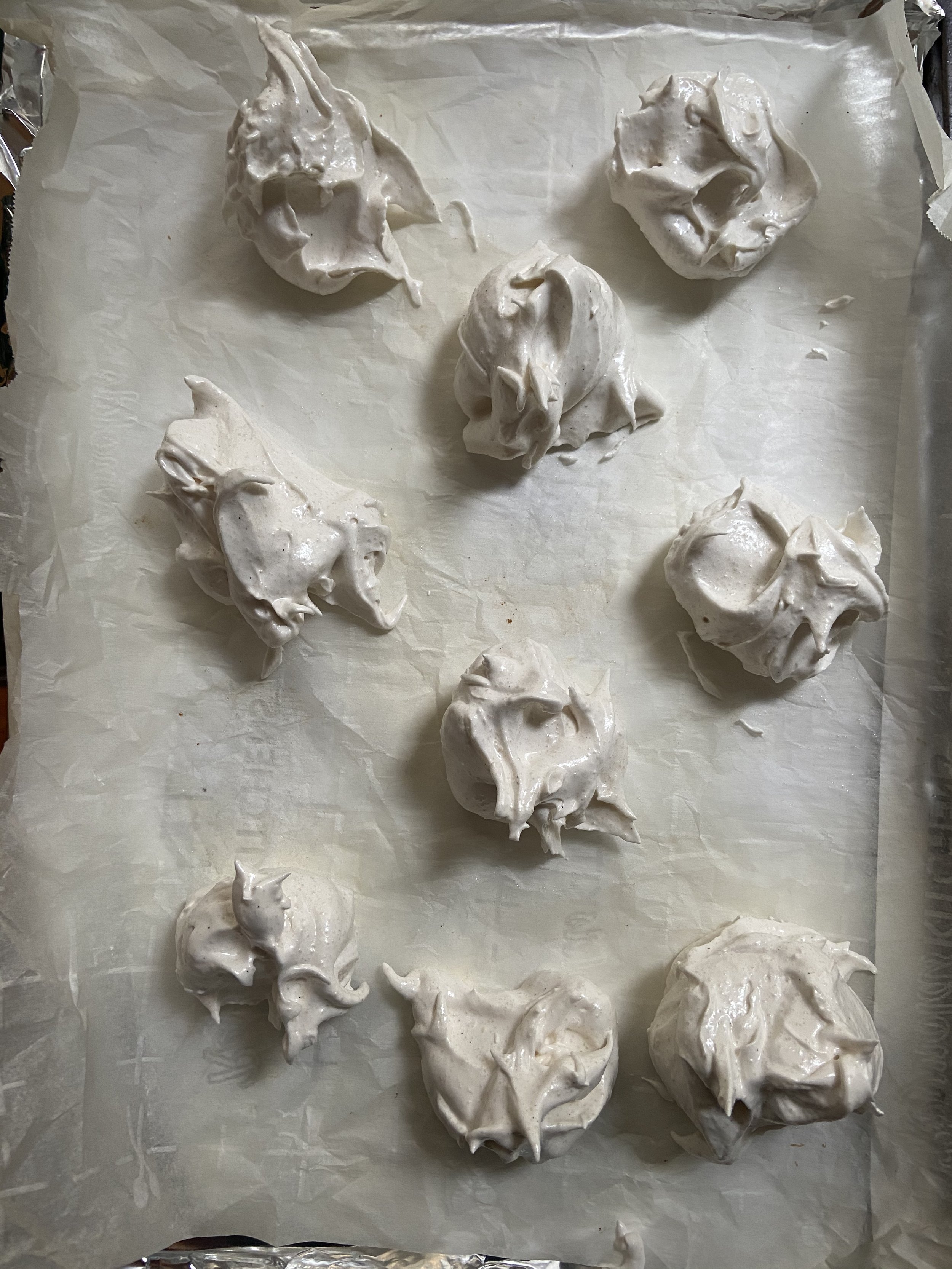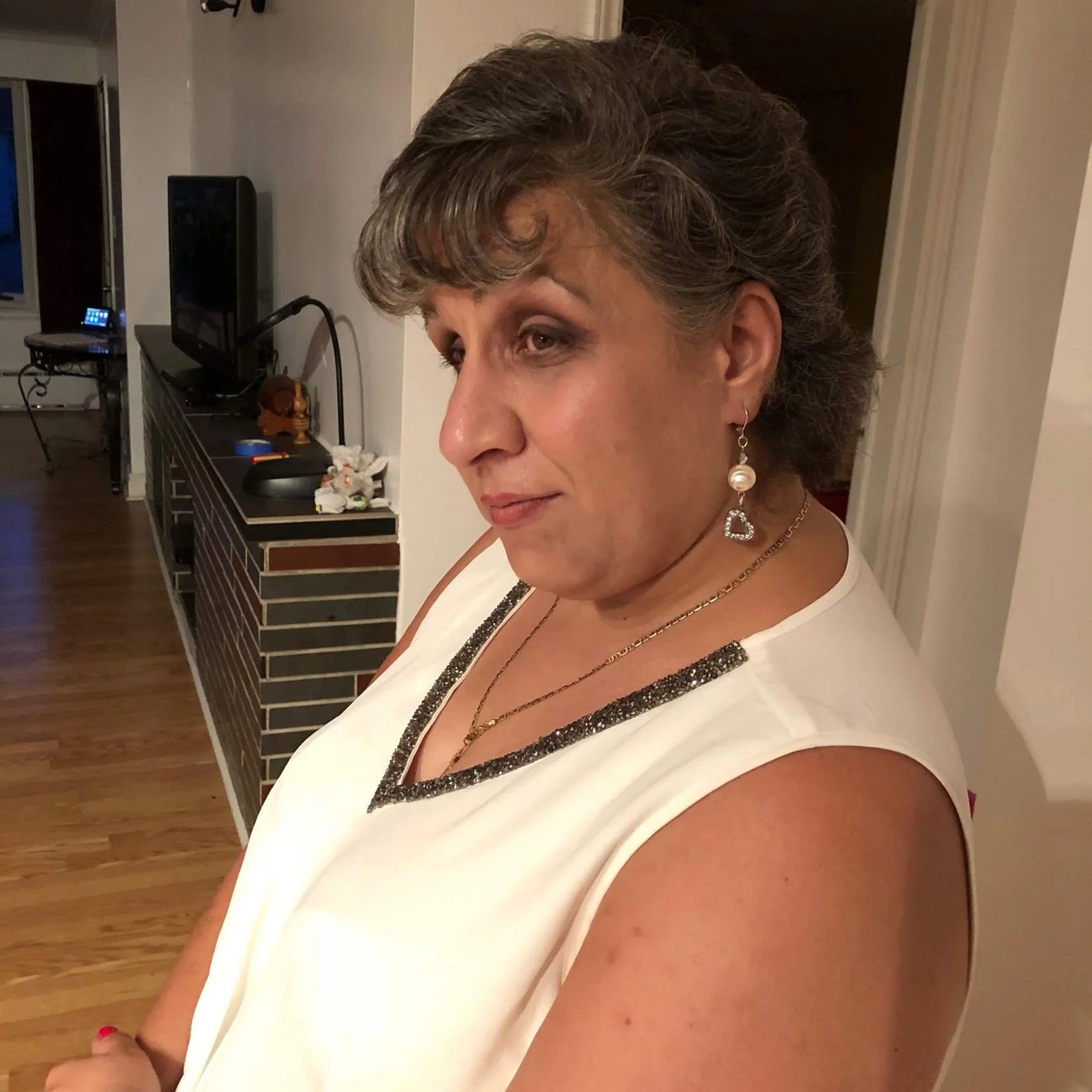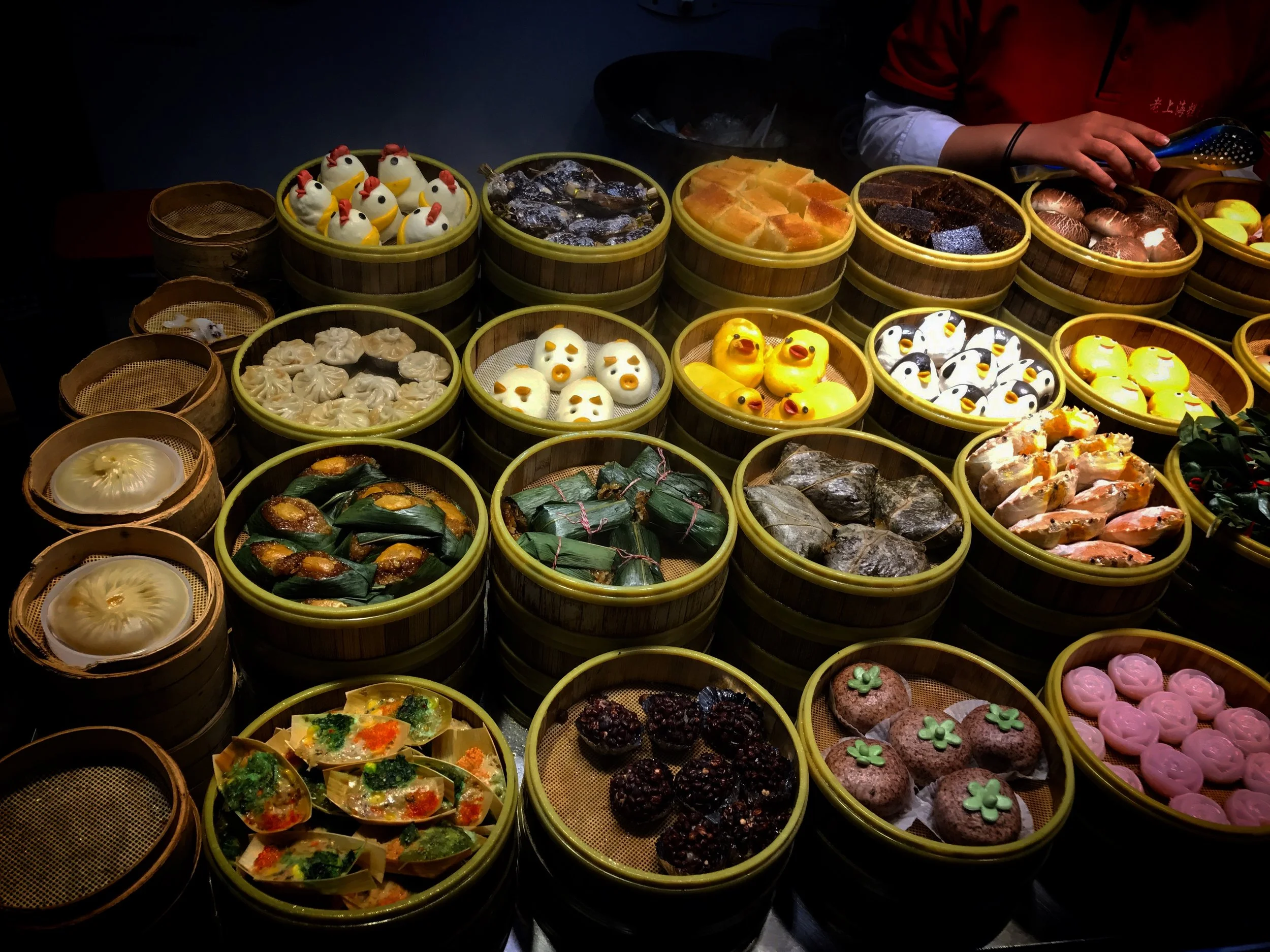
A Blind Baker’s Relationship with Food
Based in Toronto, Canada, Zoe Fiogkos is a warm, family-oriented cook and baker.
She loves to experiment in the kitchen either drawing inspiration from her Greek heritage or researching recipes from other cultures, but always making her creations accessible to all. One thing to know about Zoe is that she is blind. This adds another layer to her creativity process as well her desire to inspire others to cook. The following is a series of Q&A between myself and Zoe as we unpacked her history and her perspective on the act of cooking and what changes she would like to see in the food industry.
A: What inspired you to create your YouTube channel Zoe's Blind Kitchen Corner?
Z: My backstory is my inspiration because I am almost totally blind. I'm still a human being, I'm still a woman, and I have a family that I wanted to take care of. I wanted to prove to myself and the world that my disability is not a problem and that I can do anything I put my mind to. I have a love for cooking and baking and have been doing it for years for my family. So, I decided well one, I want to have fun, two, to show the world that just because you have a disability, whatever that disability may be, you can still cook. So, I created Zoe's Blind Kitchen Corner, to give tips and to tell visually impaired and blind people that they can cook. I also did it because I wanted to show sighted people that I'm not to be put in a corner and that I'm just a normal human being. I wanted to have fun and share my Greek background with the world.
A: Can you describe your favorite food memory and how you weave it into your channel?
Z: As a child I did have a little bit of a strict background such as what you put on the table is for your health. But my favorite childhood memory is a recipe which I haven't done on the channel yet. My mom used to make these “cookies” once a year just for Easter, or what we orthodox called Pascha. They were so delicious! Once they had cooled down, she used to put them in a plastic bag and hang them on the back of the door. I remember as a child constantly sneaking, getting a chair, and trying to get to those cookies. I used to invite my friends over just to have these cookies that's how much I love them.
I begged my mother to teach me how to make this recipe, actually that’s how I started to cook. It was with these cookies. When I make these cookies my husband, who is 57 years old, feels just the way I did when I was a child. When I'm not looking, he tries to sneak one of those cookies. So, every year we laugh about this recipe, because it started as a child, and you know I'm 50 years old, and I still feel the same way.
Funny thing is I'm calling them cookies because there's no real translation in English. You have to shape them into braids. They're very soft just very delicious. They're called Koulourakia in Greek.
A: Would you like to create another kind of outlet, such as a cookbook as a place where you can provide translation of certain words or recipes and provide more history?
Z: I absolutely would love to do a book but you know YouTube is almost the books of today. Having said that, like I said I am open to doing a cookbook and if you've noticed on my videos, I do try to provide background information.
For example, do you know what this recipe meant in Greece 50 years ago, or what this recipe means now in Greece or what’s the differences between the south and north part of Greece? I like to do things I find important or that I think it's entertaining. So, I'm trying to combine it all together; a cooking channel which gives you a recipe, but maybe also gives you a little bit of background and Information.
A: In Episode 5: Zoe's Scrumptious Refridgetor Dessert, you had talked about vanilla powder that your family had gotten from Greece. Can you describe how you source your ingredients?
Z: There is a large Greek community here. Having said that, there are quite a few ingredients that I can't get in Toronto. So, when I come across a recipe that I want to try out and want to show on my channel, I will visit many supermarkets. If I can’t find the ingredient in stores, I will resort to Amazon and if I’m lucky and it ships to Canada from the USA. If I’m unlucky there goes that recipe, unless I can come up with a creative substitution.
When it comes to the Greek products, I do visit specific Greek bakery/supermarkets and when there is something I can't get here if I’m in Greece I’ll shop for it there. Or if I know someone who will traveling to Greece, I’ll ask them to bring something back.
A: Is there one specific ingredient that you really wish that you could get your hands on that you just can't find?
Z: Oh… there's an amazing balsamic vinegar in Greece with little pieces of dried figs in it. I’ve tried similar products from other cultures, but it doesn't taste anything like the one I had in Greece. There are certain things that we just don't have here. So, I have to get creative and think that if I really want to make this recipe, what can I substitute. When I do that, I will mention that this isn't what the original recipe calls for.
A: Is cooking therapeutic for you and do you believe it’s a way for everyone to express themselves? Do you think that food industry will become more inclusive for the visually impaired?
Z: Food is absolutely an art. It is a necessity. It's therapeutic. It's a lot of things.
Cooking gives me a great feeling of accomplishment and pleasure. When I hear somebody say “Oh my God, this is so good, this is amazing, can I have the recipe” it helps me squash any insecurities that I may have and secondly, just the fact that I’m pleasing somebody with a creation of mine it's just a wonderful feeling.
Let's say you feel down in the dumps and then you see a recipe in a book. You decide to make it and are going to change it up and add your own touch. All of a sudden, your mind and all your being for that matter is focused just on that recipe and you don't care about anything else that's going on. Even if it doesn't work out the way you think it's going to work out in your head, it actually gives you even more motivation because if I didn't get it right today, you’ll try it again tomorrow and see what happens. Then the next thing you know you're cooking for three days in a row and doing something you love. That’s why cooking is therapeutic.
Why do I think it's an art? Well just for those reasons but you're creating something, whether it be from scratch or whether it be adjusting somebody else’s recipe to your tastes. It becomes an art form. Now I know there's a lot of chefs out there who also have the visual aspect of setting up a plate and making it look really presentable and they consider that an art and I agree. In my case, because I’m visually impaired, I don't concentrate too much on the visual aspect of it. For me who cares what it looks like.
I had a recipe for something called loaded potato poppers. The main ingredients were bacon, cheese, and shredded hash brown potatoes and you mix all these ingredients up and it creates a nice appetizer so I made them for a friendly get together. Everybody was swooning over them and they love them, so that got my wheels turning, and this is where I say the creative part of it comes out because I thought okay, these are really good but, can I make them Greek. So, I started experimenting and removed the cheddar cheese and substitute it with feta and then I’m like okay let's throw out the bacon and use sun dried tomatoes. Now what spices go together with sun dried tomatoes? Greek oregano, garlic powder. So, I reconstructed, the recipe and come up with Zoe's Greek style cheese potato poppers. Am I proud of this recipe? Absolutely! I made it. I make traditional Greek cuisine, but I also want to give the Greek cuisine a modern spin but also not leave tradition behind. I want people to know the authentic Greek recipes. So that's another goal for me with the channel.
A: Speaking of putting a spin on recipes, and also thinking about art, there is a lot of food elements depicted on Icons in Greek orthodoxy, would you ever try to recreate or put your own spin on any of like the dishes that are depicted?
Z: I would never touch anything that has to do with our church. There's a certain bread that has a specific seal on it that we take the church and has a specific texture. I don't think that items that have to do with holy communion should ever be touched. I would say for events, such as the week for the departed, it's okay to add in certain things, but I wouldn't overdo it. If people start adding chocolate, it gets away from the purpose of the week, which is you know, to give comfort to the departed. So, I wouldn't touch anything like that.
I would touch something that maybe I read in the Bible. For example, the Jews made a certain bread that is mentioned. I like cooking recipes from other cultures, so I would do some research and would try to give a spin on it. Just like I don't mind if people take Greek recipes and switch them up according to their tastes or cultures. The only thing I expect is for people to mention stuff like that. I would give the owners where credit is due.
A: That is awesome because you're acknowledging the culture and history a dish came from. I’d like to talk about the food industry, because you want to get people who may not feel comfortable in the kitchen in the kitchen and for them to have a good time so what would you like to see change in the food industry in order for this to happen?
Z: I have an issue with the extreme amounts of pesticides and chemicals in our food. I truly believe you are what you eat and that food is your medicine. But the other thing that bothers me is, and I understand it, but things that are certified organic, etc are extremely expensive. If you have your average couple with a family to feed, and you try to buy organic, they're looking at an extreme amount of money for the week and I think that it's sad. Having said that, I understand that for me organically or raising animals organically might be more expensive for the farmers, etc, and that's why it comes to your table more expensive. I understand that. But I truly believe that something can be done about it.
I don't also mind food being an art form. I don't mind food being creative or motivational, however why is a restaurant “good” when we can only afford that once a year. What do you mean “good” restaurant? Does price dictate good? If your mom decides to open up a restaurant with authentic food from your culture and you buy ingredients from your average markets, why are you not considered a “good” restaurant or a high-class restaurant? That bothers me because that's putting a division in classes again food should not divide people, it should bring people together. I’m Greek. I'm passionate about certain subjects. I don't want to ruffle anybody's feathers and I live with the model that [if you] respect my opinion and then I’ll respect yours, even if we disagree.
This interview has been edited for length and clarity. December 7, 2021
Additional Articles
To read a few articles I found interesting relating to food and art, check out my Facebook page

